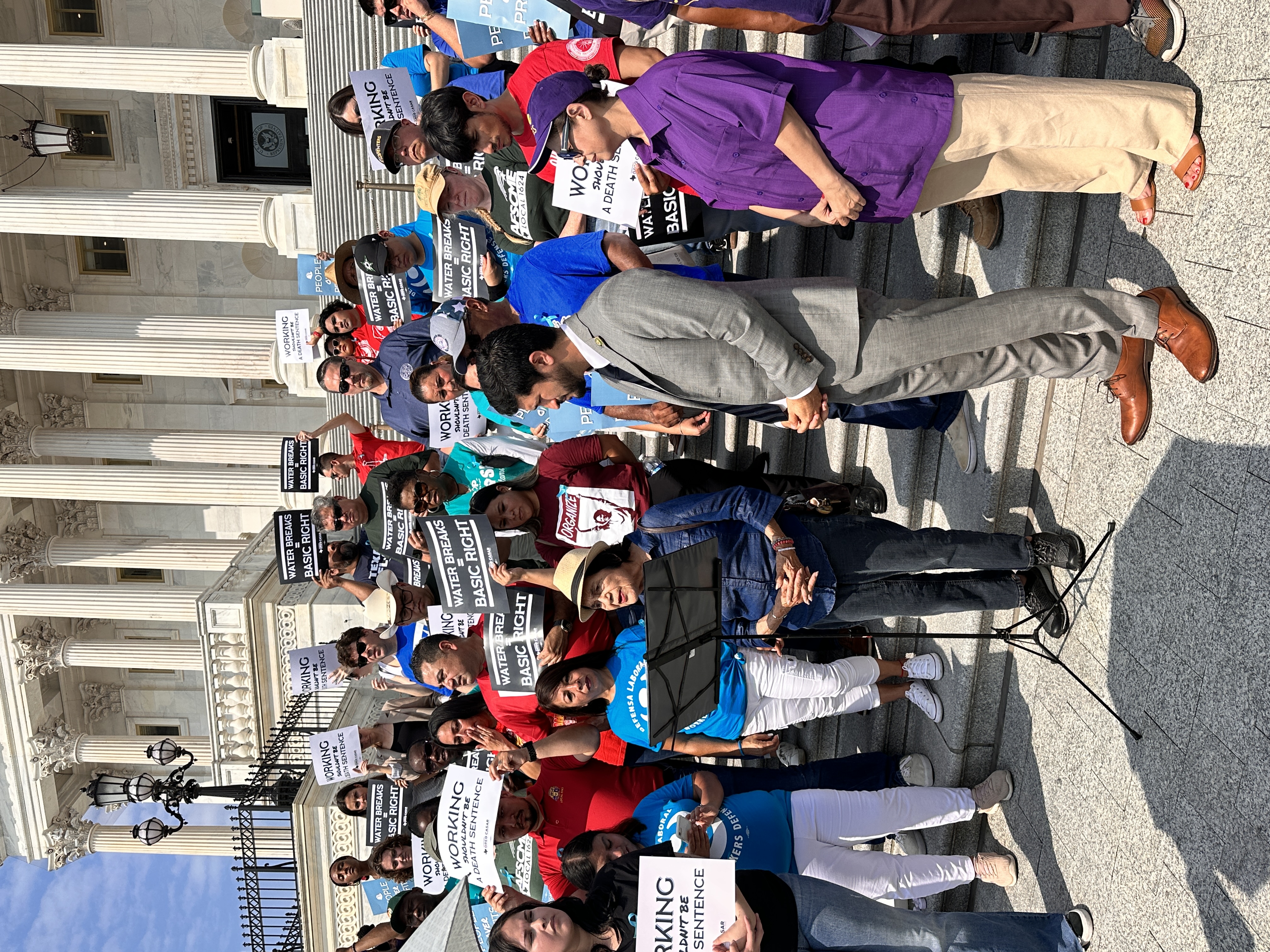
Sunday is Workers Memorial Day, when we honor and remember workers who were killed, injured or sickened at their jobs — and when we recommit to expanding worker protections.
More than half a century ago, the Occupational Safety and Health Act (OSH Act) went into effect, a law propelled forward by labor unions and their allies. The law was instrumental in reducing fatalities, setting legal requirements for employers to prevent workplace injuries and deaths.
Although our country has made much progress, far too many workers continue to be injured, sickened or killed on the job. According to the Bureau of Labor Statistics (BLS), more than 5,400 private sector workers died on the job in 2022, with an average of 15 workers killed each day in the line of duty.
“Under President Biden’s leadership, strides have been made on worker safety. A reenergized OSHA has stepped up enforcement — but the fact remains, even one worker death is too many,” AFSCME President Lee Saunders said in a statement.
“We must continue to hold employers who skirt safety regulations accountable, because our lives are more important than their bottom lines. Study after study shows that the best way to improve worker safety is through collective bargaining and the protections of a union contract,” Saunders added.
Everyone deserves the right to go to work and return home at the end of the day. Yet, thousands of workers are killed each year, and millions suffer from injuries and illnesses due to preventable exposures on the job.
Black workers face the highest job fatality rates in nearly 15 years and Latinos continue to face the greatest risk of dying at work compared to all other workers, according to an AFL-CIO report released Thursday.
Though job injuries and illnesses cost our society between $174 billion and $348 billion a year, the budgets of job safety agencies are scarcely enough to keep pace with inflation, according to the AFL-CIO report.
Public service workers are not treated equally under federal health and safety law, an injustice that AFSCME is working to fix at the federal and state levels.
In 27 states and territories, public service workers, including thousands of AFSCME members, are not protected by federal OSHA standards. State, local and municipal employees are not covered unless there is an OSHA state plan, passed by the legislature and signed into law by the governor.
In states where their laws do not protect public service workers, the union difference matters. AFSCME works hard to ensure that its members have needed health and safety protections no matter what. But that unequal treatment under federal and state law must end.
In addition to unequal coverage from state to state, current OSHA criminal and civil penalties are too low.
In fiscal year (FY) 2023, the average penalty was about $4,600 for a federal OSHA serious violation and just over $2,400 for OSHA state plans combined, according to the AFL-CIO report. These abysmally low penalties, combined with OSHA’s ability to allocate only about $3.93 per U.S. worker per year, and an inadequate number of inspectors to cover the millions of workplaces means employers are able to violate health and safety standards without accountability or oversight.
Driven by a commitment to worker justice, AFSCME, national unions and allies continue the fight for increased protections through stronger federal and state policies and collective bargaining.
In the coming weeks, Pennsylvania Rep. Chris Deluzio plans to introduce the Public Service Worker Protection Act. This bill would ensure nationwide OSHA coverage for millions of state and local government employees, regardless of whether their state has an OSHA state plan.
In addition, AFSCME supports the Protecting America’s Workers Act, sponsored by Connecticut Rep. Joe Courtney, which seeks to increase OSHA penalties and expand OSHA coverage for millions of state and local government employees.
In addition, AFSCME has been working to expand worker protections against heat illness, workplace violence, infectious diseases and chemical exposures.
For instance, in July 2023, members of AFSCME Local 1624 flew from Texas to Washington to join an all-day vigil and thirst strike on the steps of the U.S. Capitol to demand federal heat protections. AFSCME affiliates nationwide also bargain for safety protections in their contracts, bringing issues like staffing and training to the table.
The impact of worker health and safety hazards is severe, and it ripples across families and communities. As we honor the lives of those who have died on the job, AFSCME members recommit to continuing the fight to strengthen and extend workplace protections for all.
